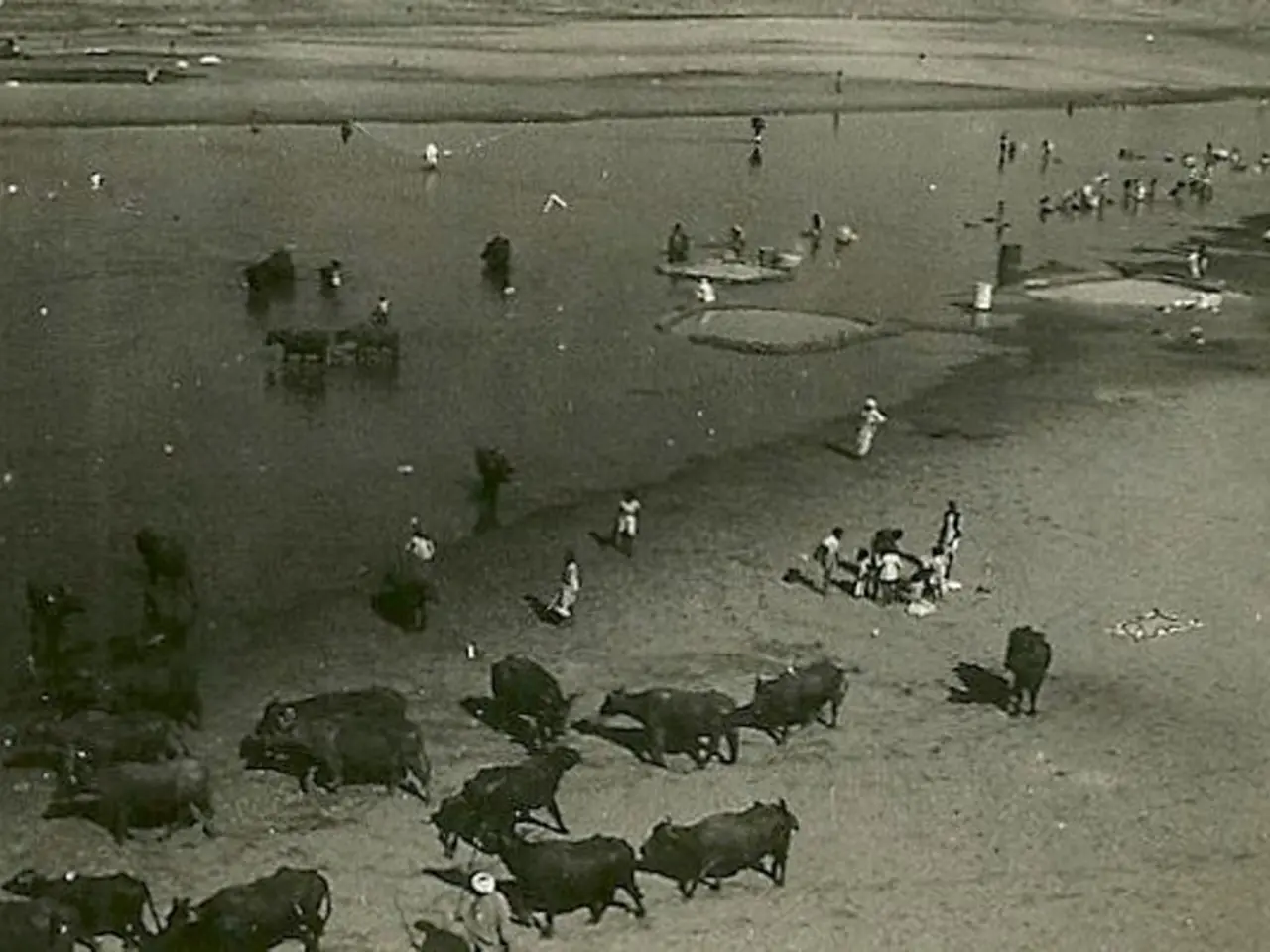Contestants Merz and Pistorius vie for German domination in NATO leadership positions
In a significant shift for European defense, Germany has announced ambitious plans to expand its military capabilities, increase defense spending, and take on a greater role within NATO. These moves aim to strengthen the European pillar of the alliance and ensure the security of NATO’s eastern flank in a changing global security environment.
At the recent NATO summit in The Hague, Chancellor Friedrich Merz reaffirmed Germany's commitment to collective defense and burden-sharing within the alliance, while also emphasizing the importance of a more autonomous defense posture. The German government has pledged to raise its defense budget sharply, aiming to meet 3.5% of its GDP for core defense requirements by 2029, well ahead of the previously projected 2035 timeline.
The Bundeswehr, Germany's armed forces, is undergoing rapid modernization under the leadership of Chief of Defense General Carsten Breuer. This includes the acquisition of advanced weaponry such as Patriot missile systems, Eurofighter and F-35 jets, Leopard 2 tanks, precision-strike systems, electronic warfare tools, space assets, and drones.
One of the key areas of focus is the support for Ukraine amid the ongoing conflict with Russia. Merz has announced further support for Ukraine's air defense, with potential decisions on additional air defense systems. This commitment to Ukraine's security comes in response to the Russian war of aggression, which has made defense of NATO a priority once again.
Germany's increased defense spending and modernization efforts have not gone unnoticed by its allies. NATO Secretary General Mark Rutte praised the increase in German defense spending and accepted the offer of a leading role for Germany in Europe. The alliance now has 32 member countries, with Sweden and Finland being the latest to join.
In a show of unity and determination, Merz met with Rutte at the Chancellery before the NATO event. The two leaders discussed the importance of NATO as a sign of unity in historic times. Merz also condemned the latest attacks by Russia on civilian targets in Ukraine, calling them acts of terrorism.
In a move that could further solidify Germany's role within NATO, Merz is reportedly considering sending an additional Patriot air defense system to Ukraine. This would be the first time a larger weapons system is approved for delivery to Kyiv beyond the number approved by US President Donald Trump's predecessor, Joe Biden.
Merz will make offers for air defense systems from Germany during a videoconference of the "Coalition of the Willing" on Thursday. These acquisitions for the Bundeswehr will be made to strengthen the German and European defense industry, positioning Germany as a driving force in NATO.
As Germany marks 70 years since joining NATO on May 6, 1955, its role within the alliance is undergoing significant transformation. The Federal Republic's current government envisions a stronger role for Germany in NATO, with the aim of expanding and enhancing the Bundeswehr into an exemplary army within the alliance. Under the leadership of Merz, the Bundeswehr is being transformed into an army with a "showcase character" in NATO.
Germany's shift towards a more self-reliant and modern European defense posture reflects uncertainties about the U.S. role in NATO. While recognizing the importance of the transatlantic bond, Germany is advancing a more autonomous defense posture to ensure the security of NATO’s eastern flank and contribute to broader alliance goals in a changing global security environment.
In the wake of Germany's expansion of its military capabilities, Chancellor Friedrich Merz is advocating for more policy-and-legislation that supports a more autonomous defense posture, particularly in war-and-conflicts such as the ongoing one in Ukraine. This shift in policy is driven by the changing global security environment and the need to strengthen the European pillar of NATO.
During the recent NATO summit in The Hague, Merz also emphasized the importance of politics, including policy-and-legislation, in ensuring the increased defense spending by Germany and the modernization of the Bundeswehr aligns with the objectives of the alliance. This general-news is indicative of Germany's increased commitment to collective defense, burden-sharing within NATO, and playing a leading role in Europe.








